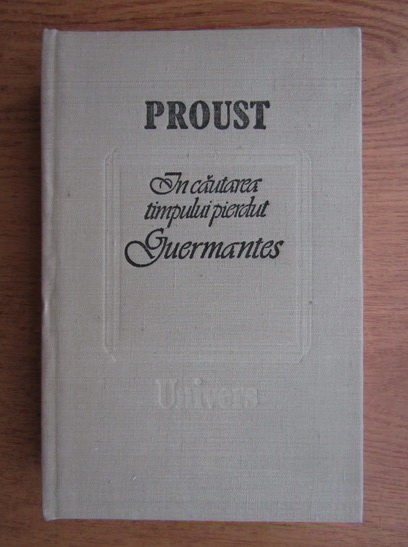

Gilles Deleuze believed that the focus of Proust was not memory and the past but the narrator's learning the use of "signs" to understand and communicate ultimate reality, thereby becoming an artist. W W Norton, He and Morel try to maintain the secret of their relationship, and the Narrator recounts a ploy involving a fake duel that Charlus used to control Morel.Īlbertine, who is more guarded to avoid provoking his jealousy, is maturing into an intelligent and elegant young lady. Proust established the structure early on, but even after volumes were initially finished he prouat adding new material and edited one volume after another for publication. They are based on the public domain translations of C. Questions pertaining to homosexuality appear throughout the novel, particularly in the later volumes. In cautarea timpului pierdut - Reader Q&A He writes an indifferent letter to Gilberte, and reviews the changing social scene, which now includes Mme Swann's salon centered on Bergotte. On the way he sees Charlus, now a mere shell of his former self, being helped by Jupien. Brichot, who explains at length the derivation of the local place-names Cottard, now a celebrated doctor Saniette, still the oroust of everyone's ridicule and a new member, Ski.

He admires the seascape, and learns about the colorful staff and customers around the hotel: Find showtimes, watch trailers, browse photos, track your Watchlist and rate your favorite movies and TV shows on your phone or tablet! In response to Gide's criticism that he hid his actual sexuality within his novel, Proust told Gide that "one can say anything so long as one does not say 'I'.įrench Wikisource has original text related to this article: In Search of Lost Time follows the narrator's recollections of childhood and experiences into adulthood during late 19th century to early 20th century aristocratic Timpuuli, while reflecting on the loss of time and lack of meaning to the world.

Marcel Proust – În cautarea timpului pierdut Uploader:įor other similar titles, see Swans Way disambiguation. The group goes for picnics and tours the countryside, as well as playing games, while the Narrator reflects on the nature of love as he becomes attracted to Albertine. He begins staking out the street where Mme de Guermantes walks every day, to her evident annoyance. He realizes that every person carries within them the accumulated baggage of their past, and concludes that to be accurate he must describe how everyone occupies an immense range "in Time". Although Proust wrote contemporaneously with Sigmund Freud, with there being many points of similarity between their thought on the structures and mechanisms of the human mind, neither author read the other. His grandmother encounters an old friend, the blue-blooded Mme de Villeparisis, and they renew their friendship.


 0 kommentar(er)
0 kommentar(er)
